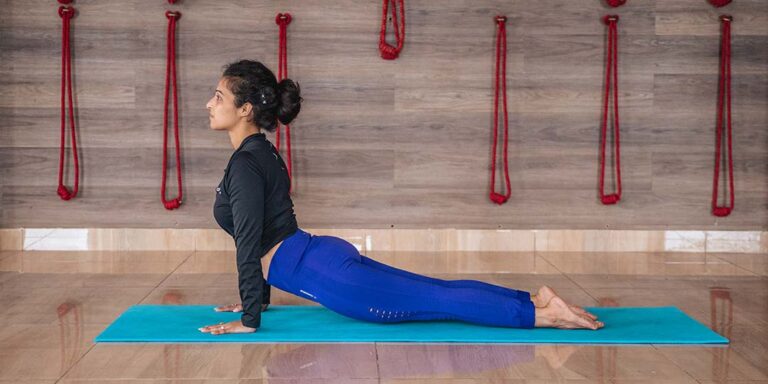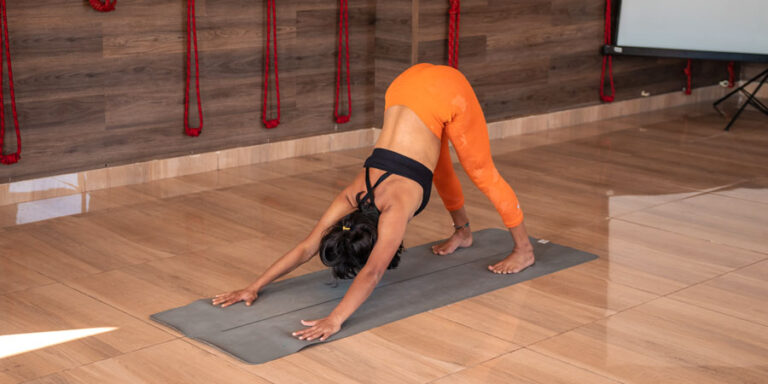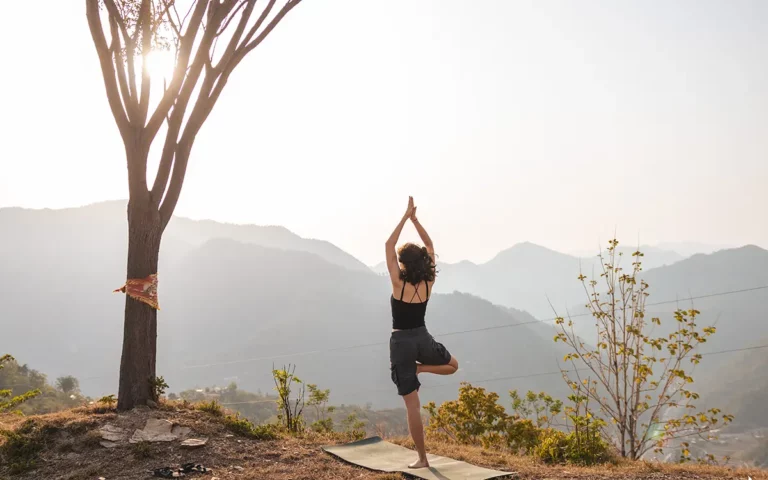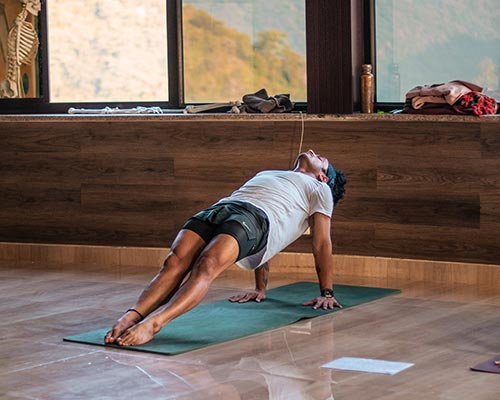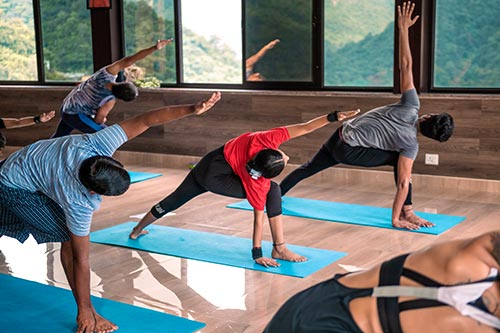7 Best tips to start Meditation
What is Meditation?
In recent years, practices of Yoga have become more popular in the media, amongst celebrities, among the younger generation, and among old age people. Moreover, it has become a trend to follow what the other person is doing in life. If you hear somebody say, ‘I have found a way to keep my stress aside, and it is all thanks to meditation.’ then listening to the person’s excitement you will be motivated to try that activity. That motivation came from someone else, it was not your mind asking you to try something.
Most of the time, we are not even aware of the stress and anxiety that we are carrying around on our backs. We keep on going from one work to another without giving a thought to our mind or body. This is how society has designed itself to function in the world. This ideology does not stay limited to people who work in the corporate, it is for everyone who decides to wake up in the morning, go to work, earn money, spend money, and come back home to push oneself more to make some more money.
Our minds have been programmed to walk on the path of materialism which hinders our capacity to feel emotions. Sometimes it is easier to explain an answer to a complex question rather than to sit with somebody and talk about emotion.
This is where the practice of yoga helps people to feel comfortable within their bodies and make them efficient enough to speak up on behalf of their emotions. Moving your body daily in some motion helps your body to release toxins; what helps the mind? Practices like meditation.
‘The ability to calm a fluctuating mind by guiding one’s thoughts in one direction is what we call meditation.’
– Unknown
Over the years, people have forgotten the true meaning and understanding of Meditation. Meditation is not about having no thoughts in your mind. Meditation practice begins with a concentration on one topic and allowing your mind to ponder over that one topic and not go beyond that topic.
Where does the practice of Meditation come from?
The foundation for the practice of meditation was theorized by Sage Patanjali in his yoga sutras. He provided a systematic method for controlling the mind and leading it to a state of union with the body. This method consists of a series of eight steps which he called 8 limbs.
The meaning of each limb can be briefly explained as follows:
- Yama – Avoidance of immoral disciplines
- Niyama – Moral disciplines
- Asana – Steady and comfortable posture
- Pranayama – Regulation of breathing
- Pratyahara – Sense of withdrawal
6. Dharana – Concentration - Dhyana – Meditation
- Samadhi – Meditative absorption
What is concentration? What does ‘Dharana’ mean?
Dharana is the sixth of The Eight Limbs of Yoga given by Patanjali in the Yoga Sutras. It talks about the concentration of the mind. Practicing Dharana means focusing the mind on a particular object — either external (such as an image or deity) or internal (such as a chakra, breathe).
“Concentration is the ability to keep awareness on one object for an extended period.”
Concentration leads to meditation. Without the mastery of concentration, there is no meditation.
What is Meditation – What does ‘Dhyana’ mean?
Dhyana is a Sanskrit word that means “meditation.”
“Meditation is an unbroken flow of thought towards the object of concentration “–PYS 3.2
Breath awareness meditation, a form of mindfulness meditation, involves training the mind to focus on the present moment without judging or altering your experience. The same type of technique we find in Buddhism known as Anapana sati means ‘Mindfulness of the Incoming and Outgoing Breath’.
The Technique :
- Sit in a comfortable posture and close your eyes.
- Set your Sankalpa (intension) for practice
- Scan your whole body, and check for any tension in any part of the body. Adjust your body accordingly to release the tension and let your whole body relax.
- Take a long and deep breath, whilst exhaling feel deep relaxation through your whole body to make sure you breathe through your nose only.
- Take another breath and exhale slowly and smoothly.
- Slowly turn your awareness to your breathing pattern.
- Begin smooth and deep inhalation and exhalation with awareness and alertness. Repeat it for ten rounds or more.
Why should we practice Meditation?
In a world full of materialism it is natural to forget yourself in the race. We are all running towards something that we think we want and desire. After running for years and years, we are still dissatisfied with what we have achieved. We are constantly looking for more reasons and directions to run towards.
Never once do we stop to think, ‘why?’ Do we know why we are running? For whom are we running? For what are we running? Is it to make your bank balance safe and secure for the future? Is it for your children’s comfortable life? Is it to buy that phone that you once put on your card?
This desire is endless. As humans, we are never really satisfied with what we have or what we might achieve. We love the chase towards achieving something and the moment we reach that height, we are dissatisfied and lose our attraction to the goal. So, we make another and another every time. This keeps us in a loop where we get tied up every time we achieve something and then decided to lose its purpose to us and go for another.
This is where the practice of yoga comes in. It guides you to look inside and find all that makes us uncomfortable and challenge yourself to be better. To face our own emotions and express them first to ourselves. Feel the pain from which we have been running. Feel the joy that we avoided thinking it might not last long.
When should we practice Meditation?
There is no specific time in the day when one should practice meditation, although it is recommended to practice meditation on a comparatively light stomach to avoid the chances of unnecessary reactions due to increased energy in the body.
Yoga practices like meditation are powerful because it is the final level before achieving samadhi for a human. The highest state of being and enlightenment. This is where all the questions that start with a ‘why’ get answered. Therefore it is important to remember that this practice can be intense which can help increase energy in your body, which should be maintained at all times.
This mindful practice can be done at any hour of the day as long as it is done with the pure intention of understanding oneself and focusing on new learnings.
7 Best tips to start Meditation:
1. Do not be afraid of your mind.
Find the courage to sit in one place without any fear or disturbances in your mind. Try to overcome your overthinking to bring symmetry to your thoughts. If you wish to experience the benefits of meditation you need to take that first step toward its practice.
2. Pledge a goal in your mind.
It is important to set an intention for your practice. The idea of dedicating your practice to something or someone (be it yourself) gives your mind an end goal to achieve. This will help you not just maintain consistency but to develop gratitude for yourself and your loved ones.
3. Start with 2 minutes a day, Baby-steps!
Do not keep any unrealistic goals of sitting for meditation for half an hour or 20 minutes a day. The best way to desire dreams is a slow way. Making a hasty decision has never proven efficient. One needs to know their limitation before diving into something new.
4. Make a space for yourself.
Find your corner in your house for the practice of Meditation. Lights a candle, put up incense sticks, turn on a warm light or put on a comfort blanket, be it whatever makes you feel relaxed, and make sure to practice in this one place only. Make it your comfort space where you can go to release negative thoughts.
5. Find your rhythm to your practice. Do not follow or copy.
Look for the right method and technique of meditation that relaxes your nervous system. Not every practice of meditation is beneficial to everybody. Each individual is different and one should pick the practice that works well for them.
6. Be aware of your practice.
Be mindful of your practice. We all are not very confident about something that we are trying for the first time in our lives. It is normal to feel that way but whenever you do decide to practice, make it a conscious practice.
Your actions towards the goal of your meditation should be clear. If you sit with an intention then make sure to fulfil it.
7. Be patient with yourself.
Do not be aggressive with your practice. Allow yourself to fail a couple of times before you can sit with yourself. When we try something new and fail at it, we generally give up if we do not keep patience with it and patience is the most crucial trait of it all. Be kind to yourself and towards your practice.
Benefits of this Practice:
Our bodies function the way our mind instructs them to; Like a conductor of a musical, our mind swings its thoughts in one direction to make a melody and flips it around when there is a need for change in the melody. Our life is an orchestra. It poses musical instruments which bring about emotions of joy, anger, sorrow, confusion, dullness, excitement, and more.
Similarly, life is full of melodies of a different kinds and our mind is the conductor for it. The day we learn how to operate the conductor or to communicate with it, will be the day our minds and bodies will start to sync together. Flow in a direction together without any distractions.
There are multiple myths about practicing meditation and how its purpose is only to relax your mind and body. But as mentioned above, it is more than a technique to relax. Meditation is not the ultimate tool to get rid of stress. Neither it is a shortcut to reaching a state of mind full of bliss and peace.
Meditation is a power that we generally fail to use and understand. In our culture, we have heard mythologies and read Vedas to understand how Rishis and Munis of that era were able to control their mind with the power of mediation. Sit in one position for hours and hours, in adverse situations, and sustain themselves. Hot or cold weather did not affect them; ever wonder how?
A scientifically proven method of Meditation makes you capable enough to convince your mind in an extreme situation and make it acclimatising enough for them Rishis and Munis.
Below are some of the benefits of Meditation :
- Reduced amount of stress
- Relaxed mind, body, and muscles
- A deep sense of well-being
- Increased concentration
- Experience a higher state of consciousness.
- Heightened senses
- Vigilant awareness
- A sense of contentment
- Ability to control an anxious mind
There is why the practice of meditation should be inculcated in your life. Making it a routine from a young age can give your mind and body the benefits it deserves. In these modern times, we are constantly distracted by technology and fancy gadgets. Children are given these technological toys at a young age, making them dependent on temporary objects. It is important to understand oneself. It is important to increase emotional understanding of the surroundings and situations.
Diving into the material world, we tend to forget who we are. We are all put up in the race of life, which tires us physically and mentally. When was the last time you did something because your heart asked you to do it? When was the last time you sat with yourself without a gadget in your hands?
Related Posts:
- Yoga Poses for Weight Loss: The Top 10 Advantages
- Yoga for Diabetes. How Stress Causes Diabetes.
- 5 Yoga Poses that give you relief from back pain
- 10 Benefits of daily yoga practice
- Why choose yoga as a career?
- Yoga Teacher Training vs Yoga Retreat. What should you choose?
- Methods to boost Endurance during Aerobic and Anaerobic Exercises.
- Yoga Teacher Training in Rishikesh India
- Why Join Agni Yoga India for Yoga Teacher Training in Rishikesh India?
- 500 Hour Yoga TTC in Rishikesh
- How to Dress Correctly for a Great Yoga Session? A Beginners Yoga Outfit Guide
- 15 Standing Yoga Poses That Will Build Full-Body Strength & Balance
- What is Ashtanga Yoga and Its Primary Series, Intermediate Series and Advanced Series?
- What is philosophy?
- What is Pranayama and Its Benefits? Types and Techniques for Beginners
- Yoga Retreat in Rishikesh
- Yoga Teacher Training Rishikesh India
- 7 Best tips to start Meditation


